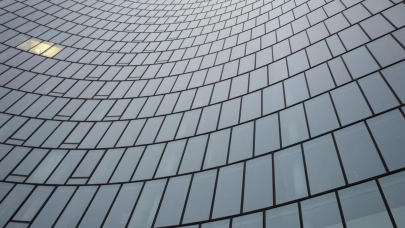
Panattoni continues its investments in the East of Poland with the handover of another development in the Lublin region. The first tenants are now starting their operations in Panattoni Park Lublin IV.
Panattoni has supplied over 250,000 sqm of industrial space in the Lublin region across three industrial parks. These include Panattoni Park Lublin II, the largest park in Eastern Poland, and two BTS developments constructed for logistics operators DB Schenker and Rohlig SUUS Logistics. Panattoni Park Lublin IV is a two-building complex with a combined area of 52,000 sqm, built within the Świdnik Economic Activity Zone.
“The benefits of Panattoni Park Lublin IV have already been noticed by four tenants from totally different industries: automotive, supplement manufacture, FMCG and paper packaging. This demonstrates the great flexibility of the complex and its suitability for different processes including manufacturing and logistics. The tenants are companies with international reach with highly specialised operations and non-standard requirements, to which Panattoni has responded”, says Dorota Jagodzińska-Sasson, Managing Director at Panattoni.
Kostal Automobil Elektrik, a supplier of solutions to the automotive industry, has signed a lease for over 17,000 sqm including a separate manufacturing area fully adapted to meet its requirements as well as warehouse and office space.
Due to the specifics of its operations, bespoke space was also required in the case of Leciforce – a producer of high-quality lecithins and phospholipids, which are used by industries that include pharmaceuticals and cosmetics. Their manufacture requires a hi-tech manufacturing plant that can meet the requirements and high standards stipulated by sanitary regulations.
Mastermedia is also a tenant of the park. The food exporter has begun warehousing and distribution operations from an area of 14,000 sqm.
The most recent tenant is MM Lublin, a manufacturer of foldable boxes and self-sticking labels for the cosmetics, pharmaceutical and health-care industries with customers in Western, Central and Eastern Europe. The company is to use the new park for warehousing.
“As we have already completed a centre for DB Schenker, this is now our second development in the Świdnik Economic Activity Zone. We have completed it thanks to our excellent work with the local authorities, who have created conditions that are investment and business friendly. The Lublin region is now becoming the driving force behind all of Eastern Poland and is attracting international players. This is aided by its access to labour including workers with high qualifications, as well as its improving infrastructure with roads at the forefront including the international Via Carpatia and a new airport cargo terminal and finally by its rapidly growing volume of modern space, in which Panattoni’s projects have played a huge role”, states Dorota Jagodzińska-Sasson.
Panattoni Park Lublin IV has been constructed in Świdnik just outside the administrative capital of the region. It also benefits from its proximity to Lublin International Airport, where a new cargo terminal is under construction. The complex is next to the Lublin-Zadębie junction where the S12 – which will eventually join Central Poland with the country’s Eastern border – connects with the S17, which runs from Warsaw to Lublin. The development also has access to the S19, which makes up a section of the Via Carpatia.
The Świdnik park is to undergo BREEAM certification for a rating of Excellent, in line with Panattoni’s technical requirements. The roofs of both buildings are to be reinforced and ready for the installation of solar panels, a standard that Panattoni has already maintained for the last two years. Sustainable construction solutions have been employed including increased insulation in the walls and a significant reduction in the need for primary energy (PE). Additionally, one of the tenants uses a heat recovery system for its compressors.
A recreation and rest zone has been created with tables and benches and the entrance to the centre is surrounded by a pocket park while the office space has been modified to meet the needs of those with disabilities. The solutions to support sustainable transport include a roofed area for bicycles and electric vehicle charging stations. Additionally, 5% of the parking spaces have been reserved for car sharing. Following the recommendation of an ecologist, a flower meadow is to be created on the site and dozens of trees are to be planted including Norway maples and small-leaved limes. Nesting boxes are to be placed around the site for birds as well as pollinator houses. A retention and seepage reservoir has also been built that replicates the natural water cycle. Water retention preserves local ecosystems and limits both soil erosion and surface pollution.



